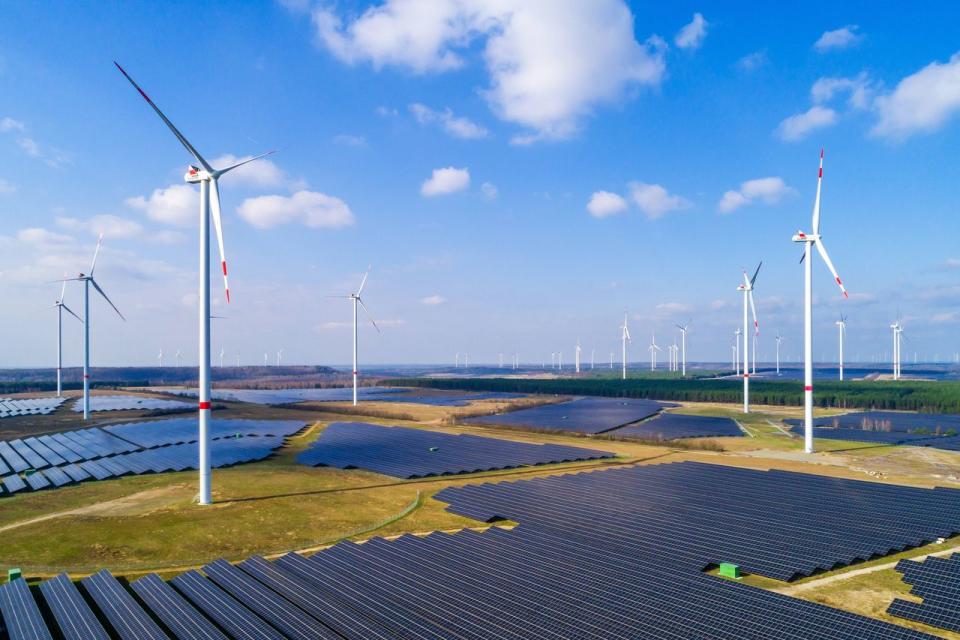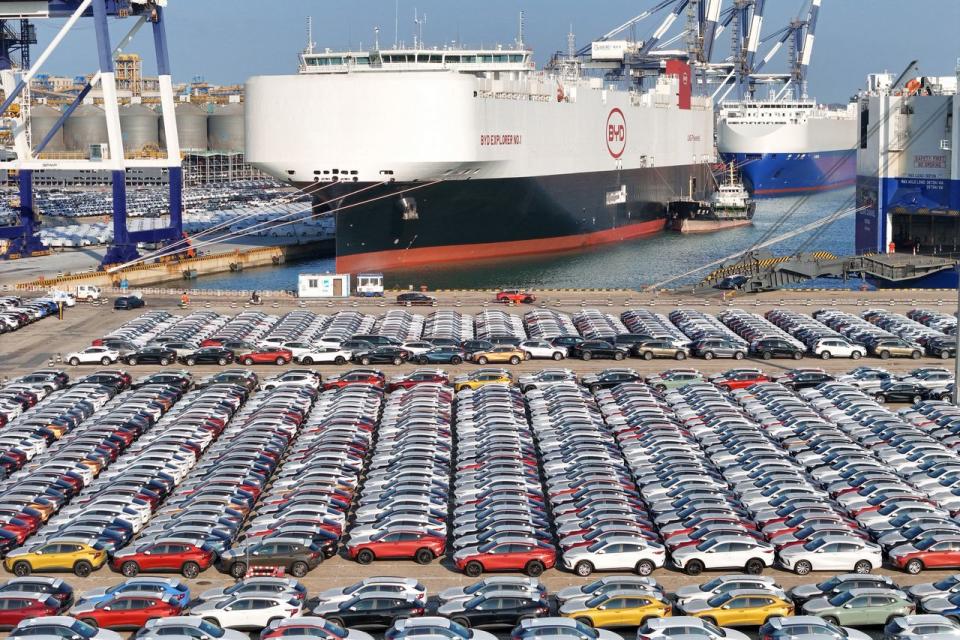Does your EV hurt, or help, the economy?
If you buy an electric vehicle rather than one with a gas engine, will it help the economy?
The more common question is whether EVs help the environment. The answer is that they do, in terms of carbon emissions, albeit with wide variation depending on how the electricity that powers it is generated and where its battery materials come from. This has long underpinned government support in many countries, including the U.S.
Most Read from The Wall Street Journal
The Smartest People in the Room Are All Listening to the Same Podcast
The Dow Is a Terrible Index. But It Is Telling Us Something Important.
Howard Schultz Is Back-Seat Driving Starbucks. That’s a Problem for His Successor.
But a product that helps the environment while posing a risk to the economy will lose public backing as it grows. This already seems to be happening: Some Western governments have scaled back commitments to EVs, fearful that they could aggravate problems such as inflation, job losses in industry and high public debt.
Germany, flag-bearer of fiscal conservatism, cut EV subsidies prematurely in December after a court struck down a government financing tool. In March, the Biden administration softened proposed fuel-economy rules requiring automakers to phase out sales of traditional cars. The European Union is considering additional import duties on Chinese EVs, even though higher costs will slow adoption of a technology it has long promoted.

The visibility of EVs makes them something of a lightning rod in the shift from fossil fuels to green energy. This transition isn’t like previous ones, when cheap coal replaced wood in the 19th century or oil replaced coal in the 20th century as new technologies emerged. This time, public policy is driving the agenda faster than the technologies would otherwise allow, turning an environmental cost into an economic one.
The result is what economists call a supply shock. The oil price spikes of the 1970s or Europe’s natural-gas crisis in 2022 are the best-known templates, though the impact of green energy is creeping rather than sudden.
Germany’s power system illustrates the problem. Since 2000, its generating capacity has more than doubled as the country has built wind farms and solar plants. Demand for power itself has fallen 5%, according to BloombergNEF. With two energy systems serving the same economy, the industry’s productivity has cratered. There are other reasons why Germany is struggling to grow, but this likely isn’t helping.
The big hope is that innovation will come to the rescue. Grid batteries, more power lines and smarter ways to match supply and demand could cut the redundancies in systems that mix cheap but intermittent renewables with fossil fuels. The cost of batteries has plummeted over the past decade as China has invested massively. After a blip during the supply-chain troubles of 2022, the trend continued last year.
That is also putting EVs on a path toward cost parity with traditional cars. China already seems to be there, thanks to a price war that shows no sign of ending. The country’s top EV producer, BYD, has started marketing its cars with the tagline “cheaper than gas,” which in Chinese sounds a bit like the company’s name.
As this kind of progress continues and spreads, the transition could turn from an obstacle to global growth into a tailwind. While this optimistic view of the future seems plausible, it is still too distant and uncertain for comfort. One sign is that most investments in green energy still aren’t fully privately funded. Just one-quarter of the $55 trillion in investment required through 2030 to meet emissions targets could be “in the money”—cost-competitive with conventional alternatives without subsidies or carbon taxes—according to a scenario modeled by McKinsey.
A thoughtful report by economists Jean Pisani-Ferry and Selma Mahfouz for the French prime minister last November argued that the energy transition could eventually lift economic growth, given the falling cost of renewables. But they also estimated that moving away from fossil fuels would trigger higher inflation and a productivity slowdown estimated at a quarter of a percentage point a year until 2030.

Another complication is that the energy transition will affect different countries differently. Fossil fuel producers will lose ground to South American countries with ample reserves of minerals required for electrification, notably copper and lithium.
More worryingly, China has built a lead in green industries such as solar panels and EVs, potentially making the Western world’s key geopolitical rival a standout beneficiary of their growth. Washington’s response with the 2022 Inflation Reduction Act was to fight China with its own weapons—generous state subsidies for climate technologies—but it has a lot of catching up to do.
A final reason why assessing the economic impact of green technologies is messy: We don’t know what would happen without them. Among the economic arguments for embracing the energy transition is that the cost of inaction, as the climate heats up and becomes more volatile, is likely to exceed the cost of action. The problem is that the bills are misaligned: due now for the capital-intensive energy transition, but due later in the counterfactual event of climate change. Also, voters facing the fact of higher bills might not respond well to theoretical scenarios.
Ultimately, an energy transition that imposes high economic costs simply isn’t likely to happen as politicians shy away from public backlash. Only innovation can cut through the trade-offs. A very rough guideline: When that EV is easier on your pocket than the gas equivalent, it might also help the economy.
Write to Stephen Wilmot at stephen.wilmot@wsj.com

 Yahoo Finance
Yahoo Finance 